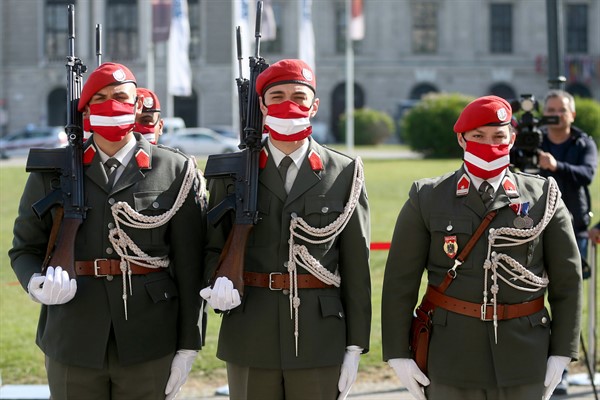“We are at war,” French President Emmanuel Macron stressed while announcing a nationwide lockdown last month. He was not alone in his choice of rhetoric, as leaders around the world have invoked battlefield metaphors to galvanize national responses to the coronavirus pandemic.
The drama of the analogy certainly makes it a convenient political instrument to justify radical state-led interventions. Yet it also blurs the differences between the current public health crisis and an actual war. During an armed conflict, militaries face human opponents with wills of their own, but there is no such enemy during this pandemic—only an unfeeling virus. As a result, governments have no need to keep their plans secret, as they would from an adversarial power. On the contrary, there is a good argument for investing energy in being more open about responses to the pandemic. Transparency is particularly desirable because it promotes the free flow of information and helps optimize the global learning environment and promote public debate.
Yet even if “this pandemic is not a war,” as German President Frank-Walter Steinmeier put it bluntly, the global spread of COVID-19 does create extraordinary challenges to governance and democratic institutions. As such, there are still lessons from wartime strategy that can be applied to the current crisis.

